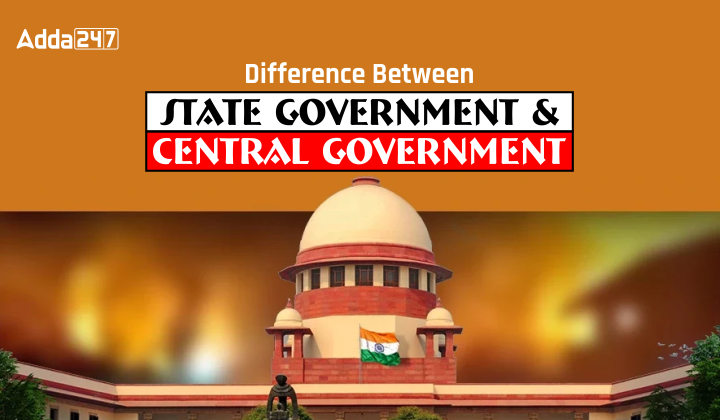In any democratic nation, governance is primarily divided into two levels: the central government and the state governments. These two entities play distinct yet interconnected roles in the administration and development of a country. Understanding the differences between the state government and the central government is crucial for comprehending the functioning of a nation’s political system. Let’s explore these disparities in detail.
What is a State Government?
A state government is the governing body responsible for administering the affairs of a specific state. It operates under the framework of the nation’s constitution and is entrusted with powers to enact laws, manage resources, and provide essential services such as education, healthcare, and infrastructure development within its jurisdiction. State governments play a crucial role in decentralized governance, addressing local needs and fostering regional development.
What is Central Government?
The Central Government refers to the highest authority of governance within a country, responsible for managing national affairs and implementing laws and policies that apply uniformly across all regions. It operates under the constitution and holds powers to oversee matters of national importance, including defense, foreign affairs, finance, and interstate commerce. The Central Government ensures cohesion, stability, and uniformity in governance throughout the nation.
Difference Between State Government and Central Government
In any democratic nation, governance is primarily divided into two levels: the central government and the state governments. These two entities play distinct yet interconnected roles in the administration and development of a country.
Here is the difference between a state government and central government:
| Difference Between State Government and Central Government | ||
| Basis of Difference | State Government | Central Government |
| Jurisdiction | Govern specific states or regions. | Administer the entire nation. |
| Legislative Powers | Legislates on subjects in State List. | Enacts laws concerning Union List matters. |
| Concurrent Powers | Exercises powers concurrently with central government. | Holds exclusive powers on certain matters. |
| Legislative Bodies | Has its own legislative assembly. | Comprises Lok Sabha and Rajya Sabha. |
| Head of Government | Led by a Chief Minister. | Headed by the Prime Minister. |
| Financial Control | Supervises state’s expenditure and revenue. | Manages national finances and budgets. |
| Policy Implementation | Implements national policies within state limits. | Develops and executes policies at the national level. |
| Administrative Oversight | Monitors state governance under the constitution. | Oversees state affairs and ensures compliance. |




 Which Lake is known as the Jewel of Udai...
Which Lake is known as the Jewel of Udai...
 Which is the Largest Banana Producing St...
Which is the Largest Banana Producing St...
 Which is the First Tiger Reserve of Utta...
Which is the First Tiger Reserve of Utta...








